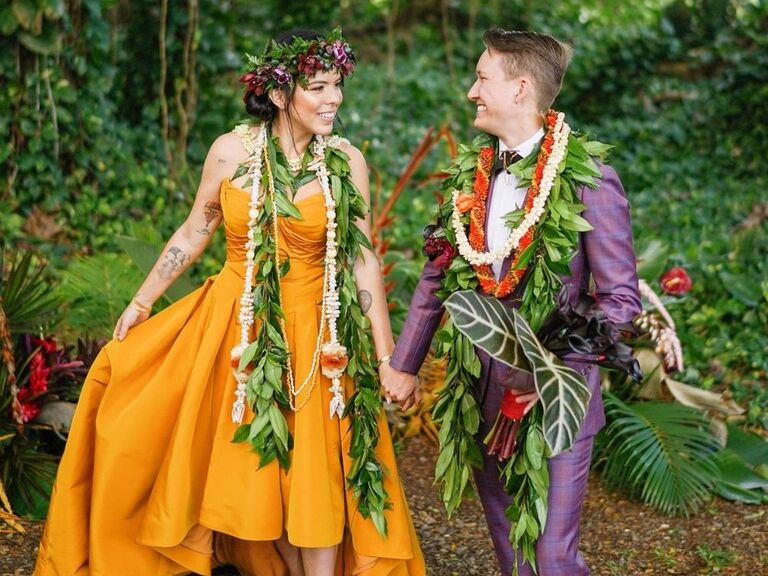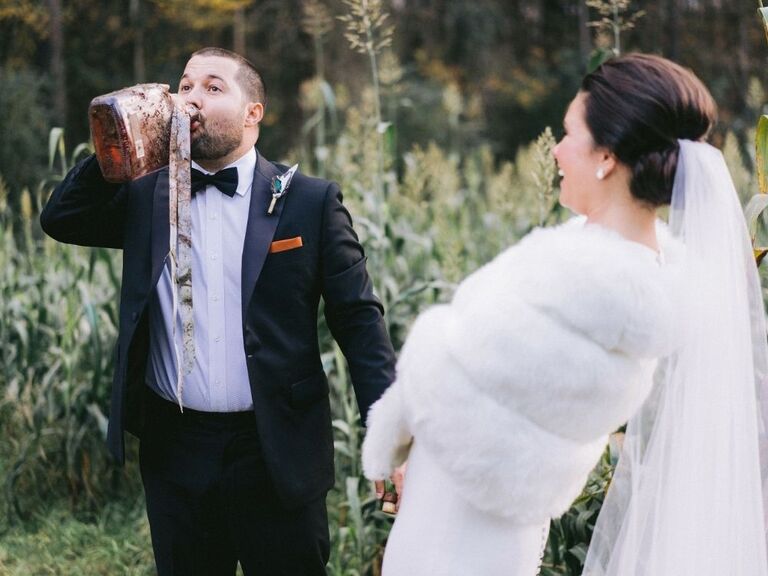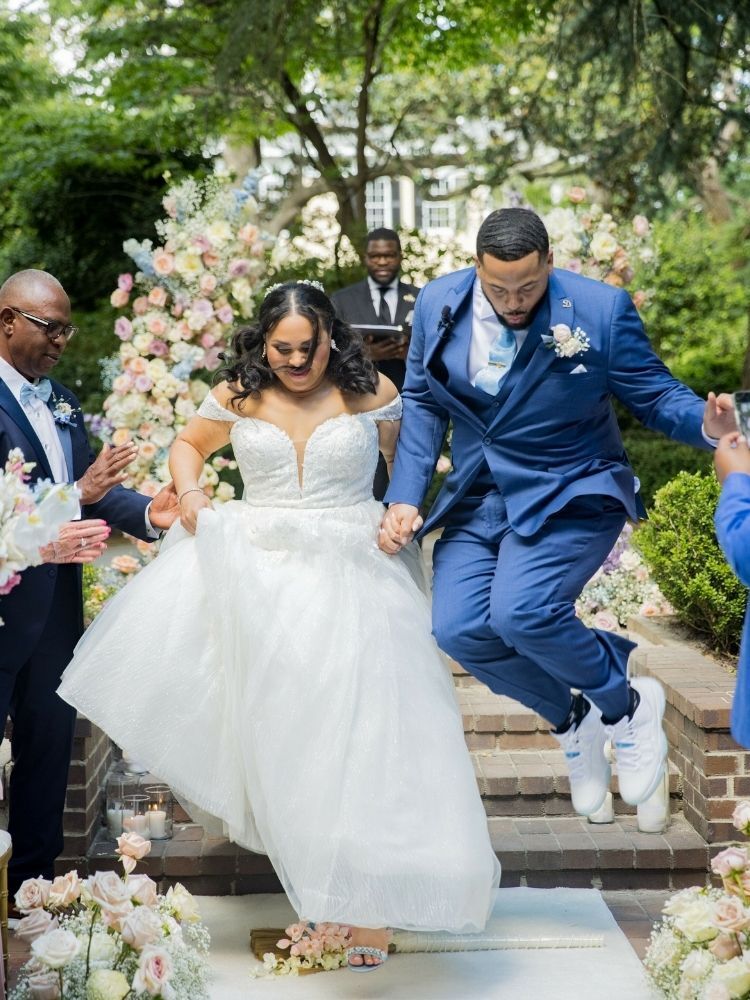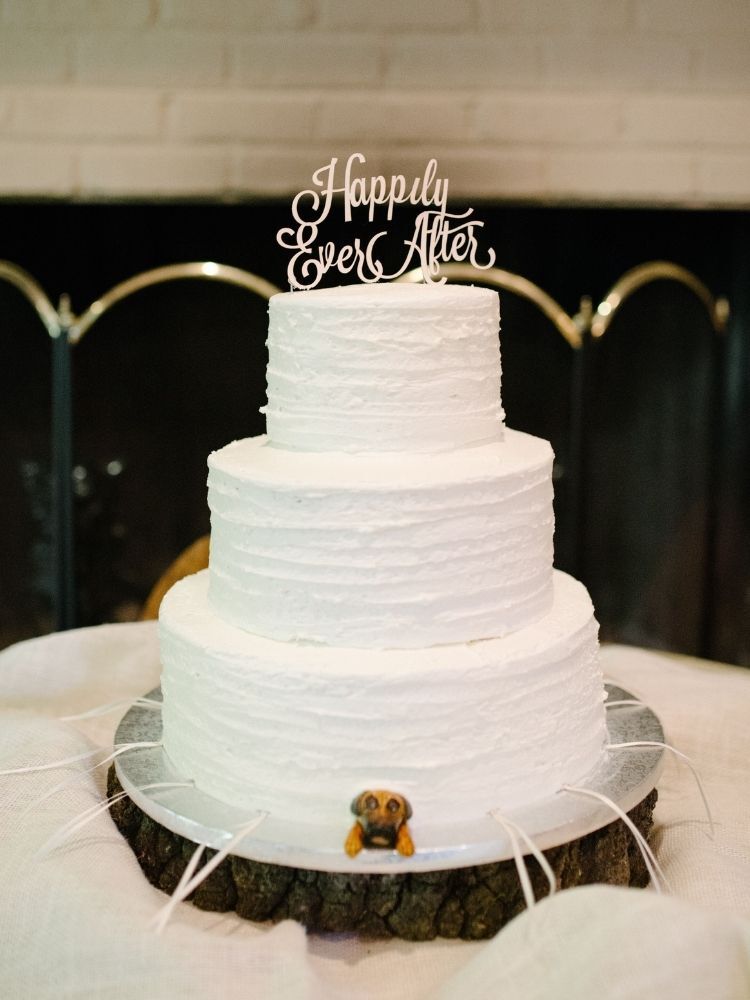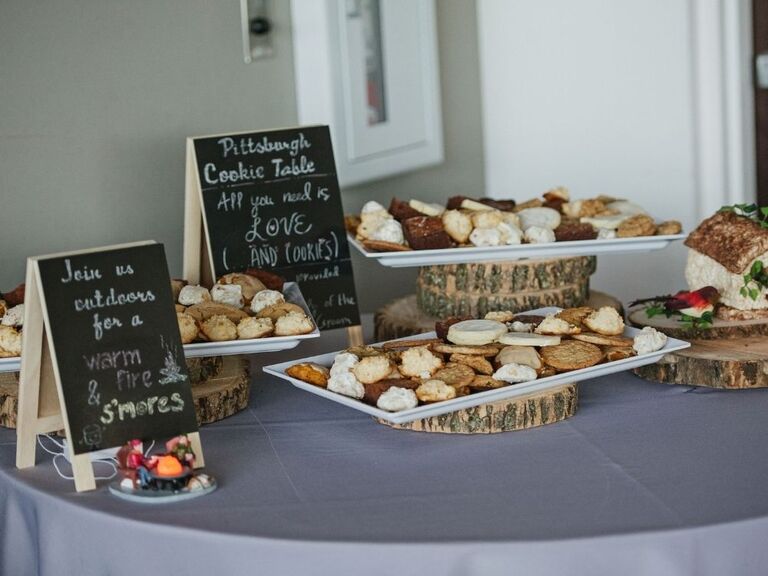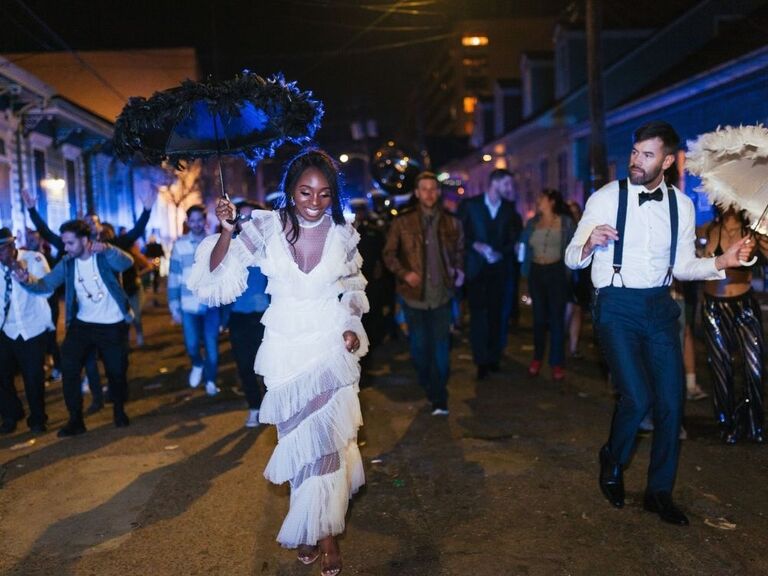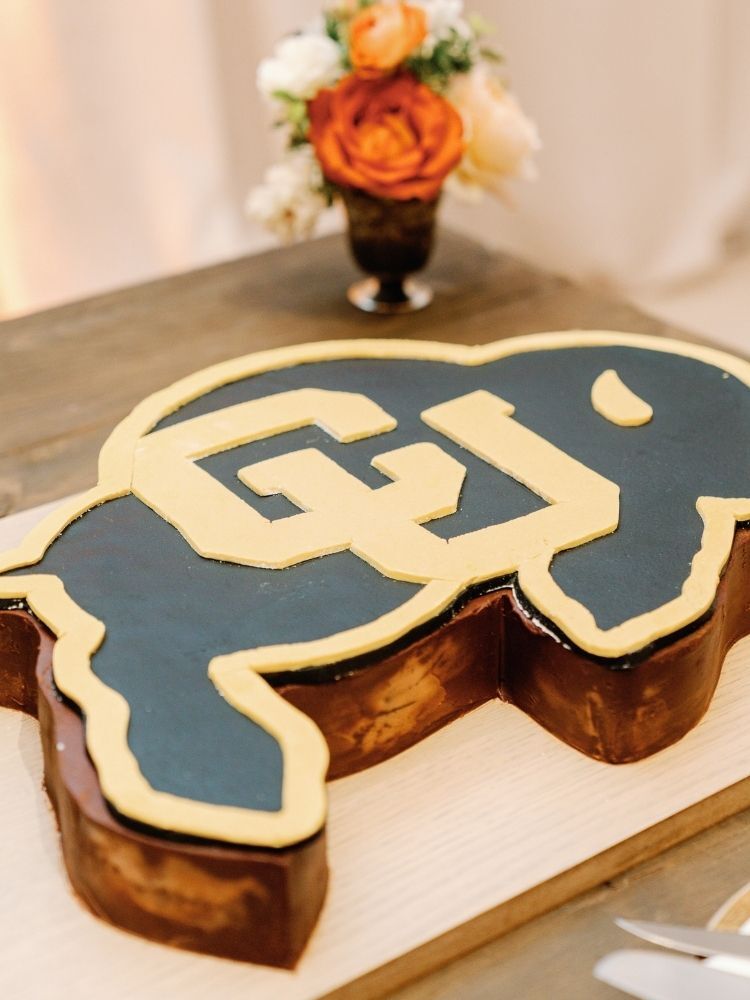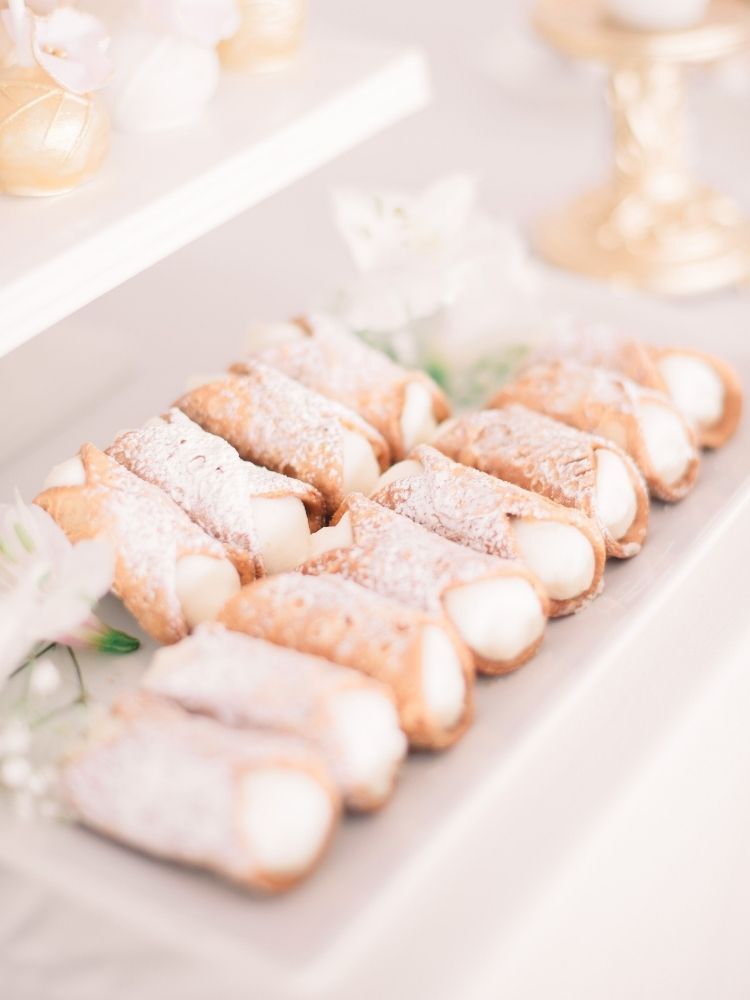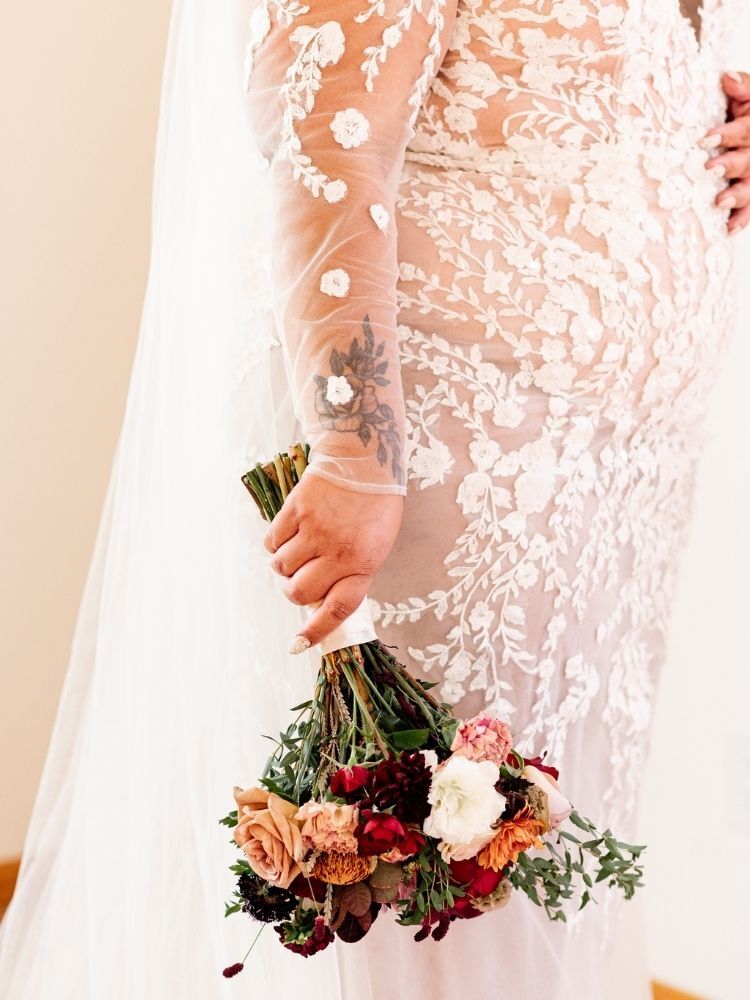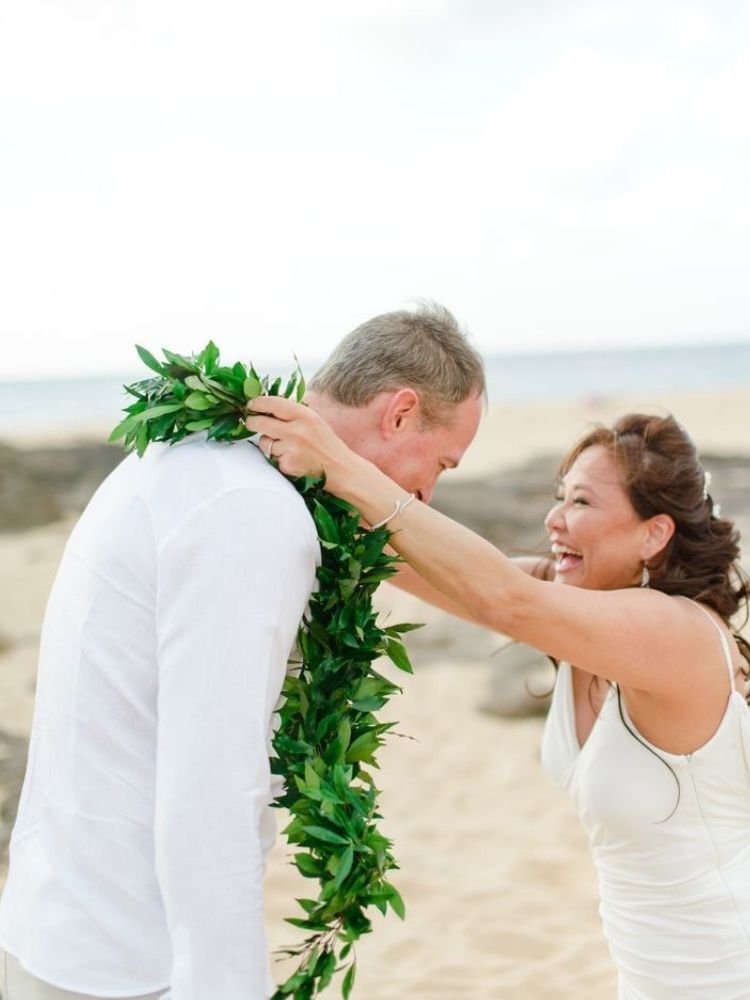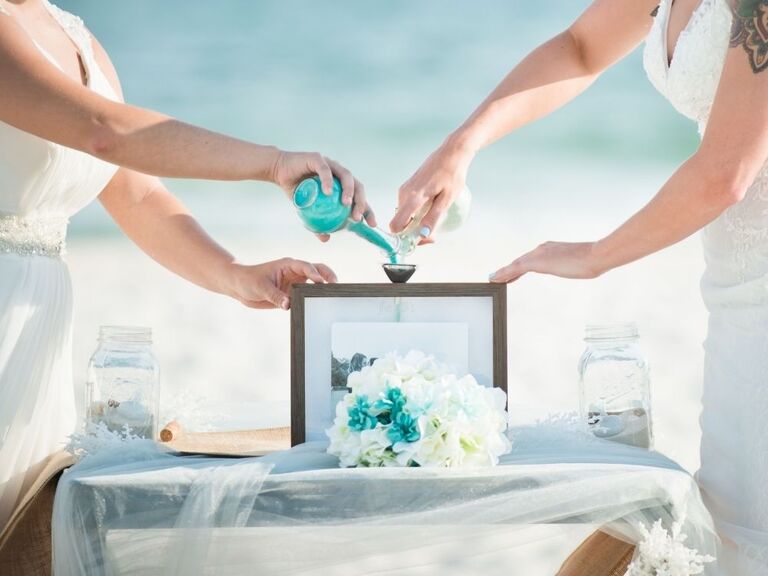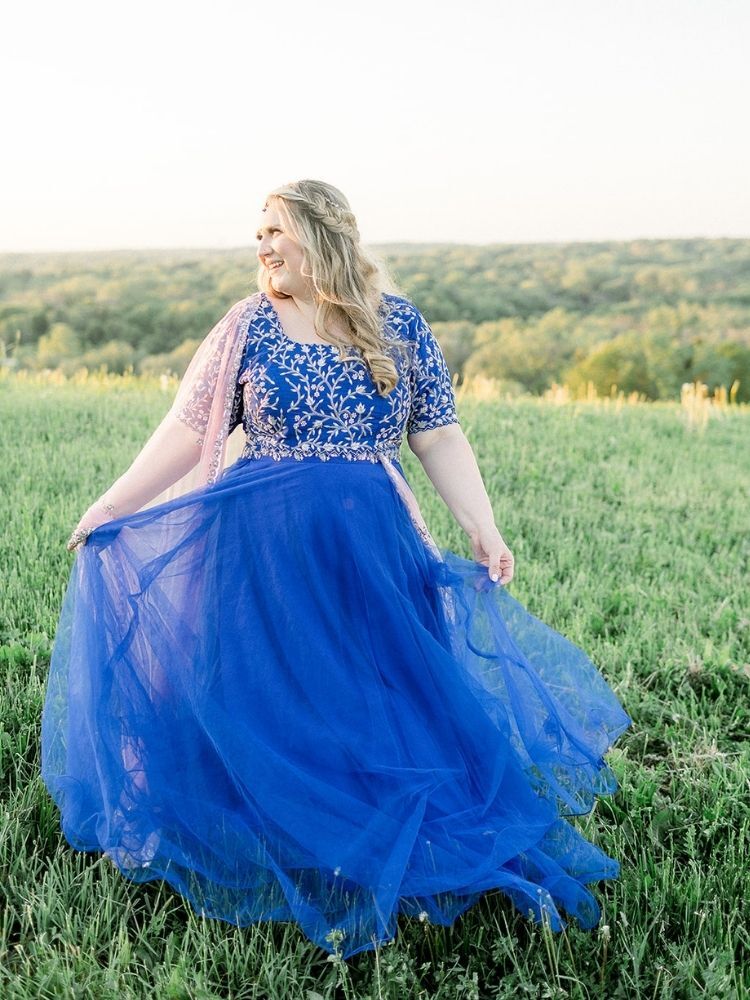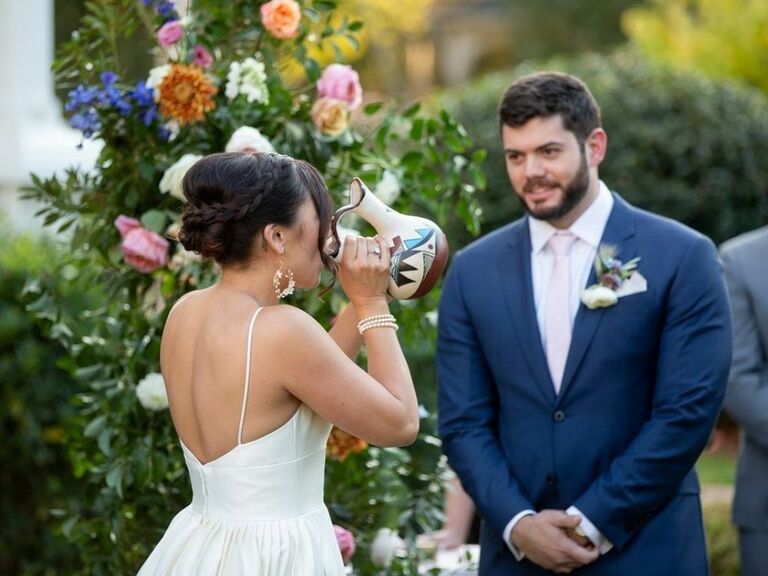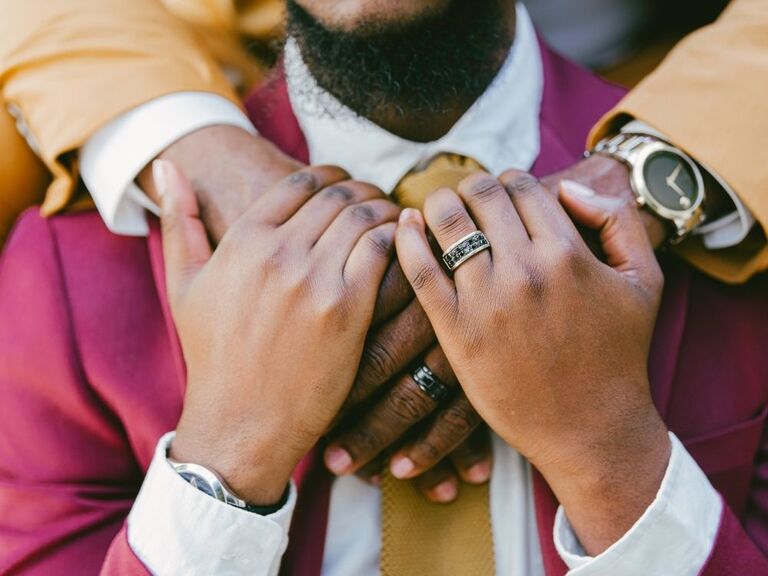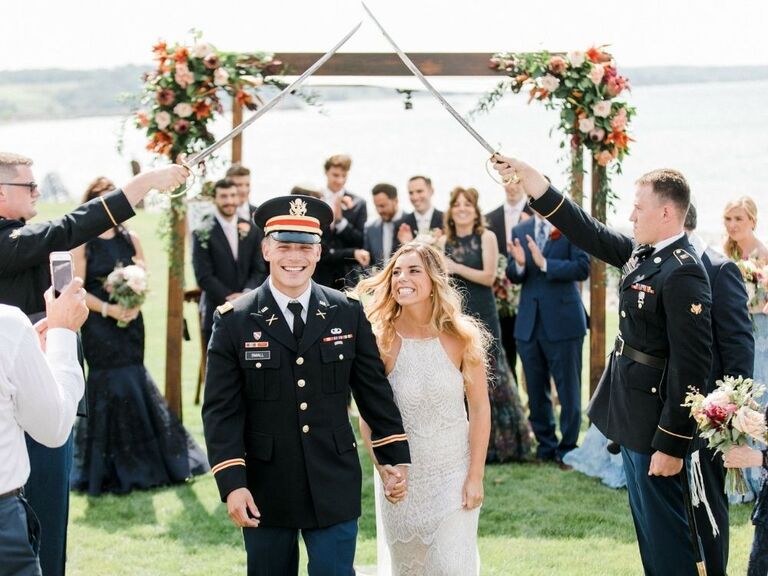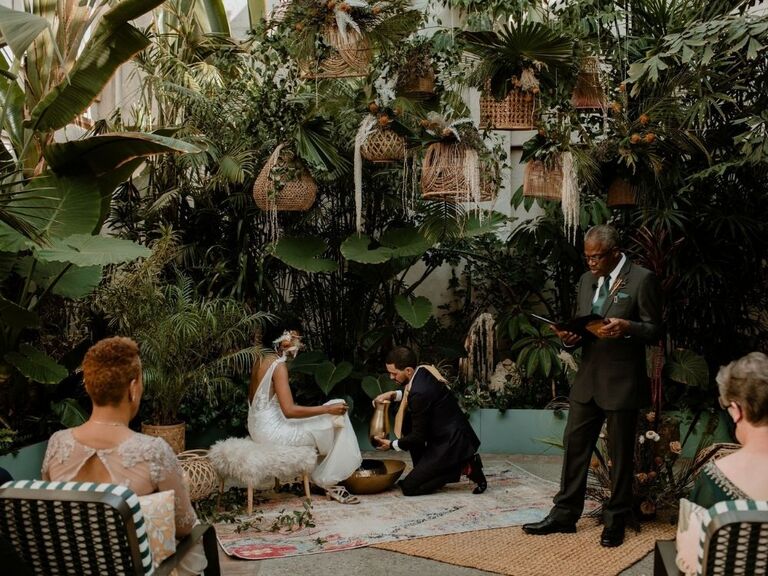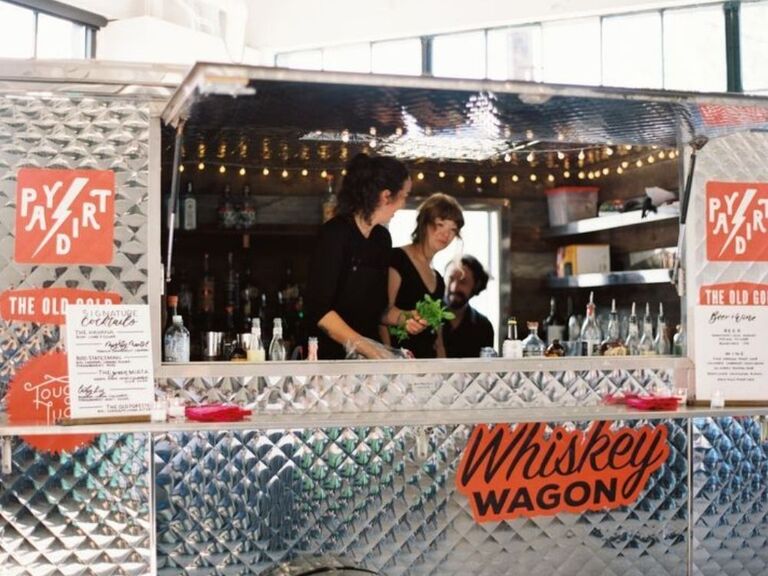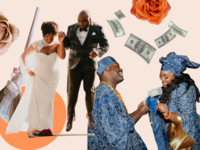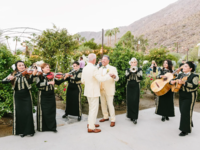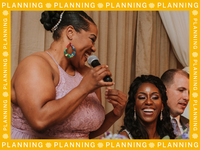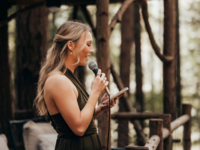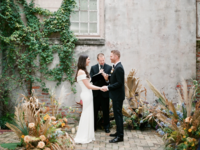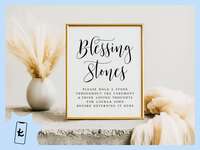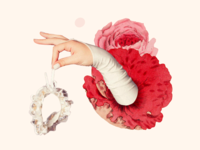American Wedding Traditions From Across the Country to Consider
While wedding trends come and go, some American wedding traditions have been passed down from generations. Whether cultural, religious or just for fun, incorporating wedding traditions into your wedding is a nice way to honor your heritage and add beautiful meaning to the big day. From Pittsburgh to Portland, we're taking a look at American wedding traditions and rituals that are commonly celebrated in different parts of the United States. If you grew up in a part of the country known for a unique wedding practice or are jet-setting to a domestic destination spot with a cool wedding custom, consider finding a way to incorporate that into your wedding. With insights from some of our favorite wedding experts and professionals, we're diving into everything you need to know about unique and noteworthy wedding traditions in America including frequently asked questions.
While some of these wedding traditions and customs originated in the United States, others were practiced for the first time as wedding traditions in other parts of the world, but are commonly seen and celebrated as wedding customs in America and are worth considering for your own nuptials. Several are based on wedding superstitions around warding off evil spirits and welcoming good fortune, others are simply fun ways for couples today to get in the celebratory mood—whatever the case may be, there's sure to be an American wedding custom below that piques your interest.
Burying the Bourbon
In the U.S., there's a Southern wedding tradition of burying a bottle of bourbon upside down at your wedding venue one month before the big day to ensure beautiful weather. Historically, the belief was that if you buried a bottle of Kentucky bourbon exactly one month before the special day not only would you have good luck and no rain on your wedding day, but you'd also experience good fortune as a married couple.
Jumping the Broom
Many Black and African-American couples partake in jumping the broom at the conclusion of the wedding ceremony as a respectful homage to their ancestors that fought for their freedom. This black wedding tradition originated in the days of slavery as a way for couples to mark their marriage even when it wasn't legally recognized. Despite changing times, couples have chosen to continue jumping the broom as a way of honoring the past and reclaiming the tradition as one of celebration.
With traditions that have a very specific history and are deeply connected to a certain culture, it's important to only participate if you identify as a member of that culture as appropriating traditions that aren't connected to your personal heritage is something to be avoided.
Cake Pull
Frequently seen in the South, and specifically in New Orleans, the cake pull is a traditional wedding practice whose roots can be traced back to Victorian England and the days of Queen Victoria and Prince Albert.
While anyone can participate, historically this custom took place at a wedding or bridal shower wherein the to-be-wed and their bridesmaids or other wedding party attendants would pull charms out of a cake, as the name suggests. Everyone would pull the charms out at the same time to see which charm they got. Typically, a variety of different charms would be incorporated into this ritual, each with its own meaning. For example, a horseshoe charm is for good luck while an anchor is for hope.
This is a fun wedding cake tradition if you're looking for a way to include more people in the festivities and also spread some good fortune.
Pittsburgh Cookie Table
You guessed it, this tradition originated in Pittsburgh, Pennsylvania. While couples typically enlist a professional baker for their wedding cake, this dessert spread is a compilation of homemade goodies baked by friends and family of the to-be-weds.
Second Line Parade
Especially popular in New Orleans, a Second Line parade involves a brass band festively leading a group of celebrants down the street. While Second Line parades can happen at any social gathering, they're an especially fun addition to weddings if you're having your reception somewhere different from your ceremony and want a unique way to transport wedding guests from point A to point B.
Groom's Cake Tradition
Like burying the bourbon, the groom's cake wedding tradition is most commonly seen in the South. Despite the name, the concept shouldn't be limited to just grooms. We support anyone who wants to have a fun and funky second wedding cake! The idea is that many couples often have a simple tiered wedding cake for their focal cake, but then also commission a second dessert that is a bit more out-of-the-box. It could pay homage to your alma mater or even a beloved hobby—the options for a second wedding cake are truly endless.
Viennese Hour
Similar in concept to a Pittsburgh cookie table, Viennese hour is a dessert tradition often seen at weddings throughout New Jersey and New York. Without knowing it, many couples actually nod to this tradition when they opt for lavish dessert table spreads!
Wedding Bouquet Toss
Many couples are starting to move away from the bouquet toss, and the garter toss, but some people still include it as a fun, lighthearted wedding moment. Tradition says that the person who catches the bouquet will be the next one to get married. If you're worried your single friends might not like having the spotlight on them, consider if there are other ways you can meaningfully support your single friends without doing a bouquet toss.
"Most of our couples choose not to toss the bouquet or garter anymore," says Megan Estrada, wedding expert and CEO of NSWE Events. "While harmless in its intent, it can create an awkward focus on wedding guests who aren't married and make them feel uncomfortable. When deciding whether or not to include certain traditions in a celebration, couples should consider whether it reflects who they are as a couple or the tone they want to set for the event."


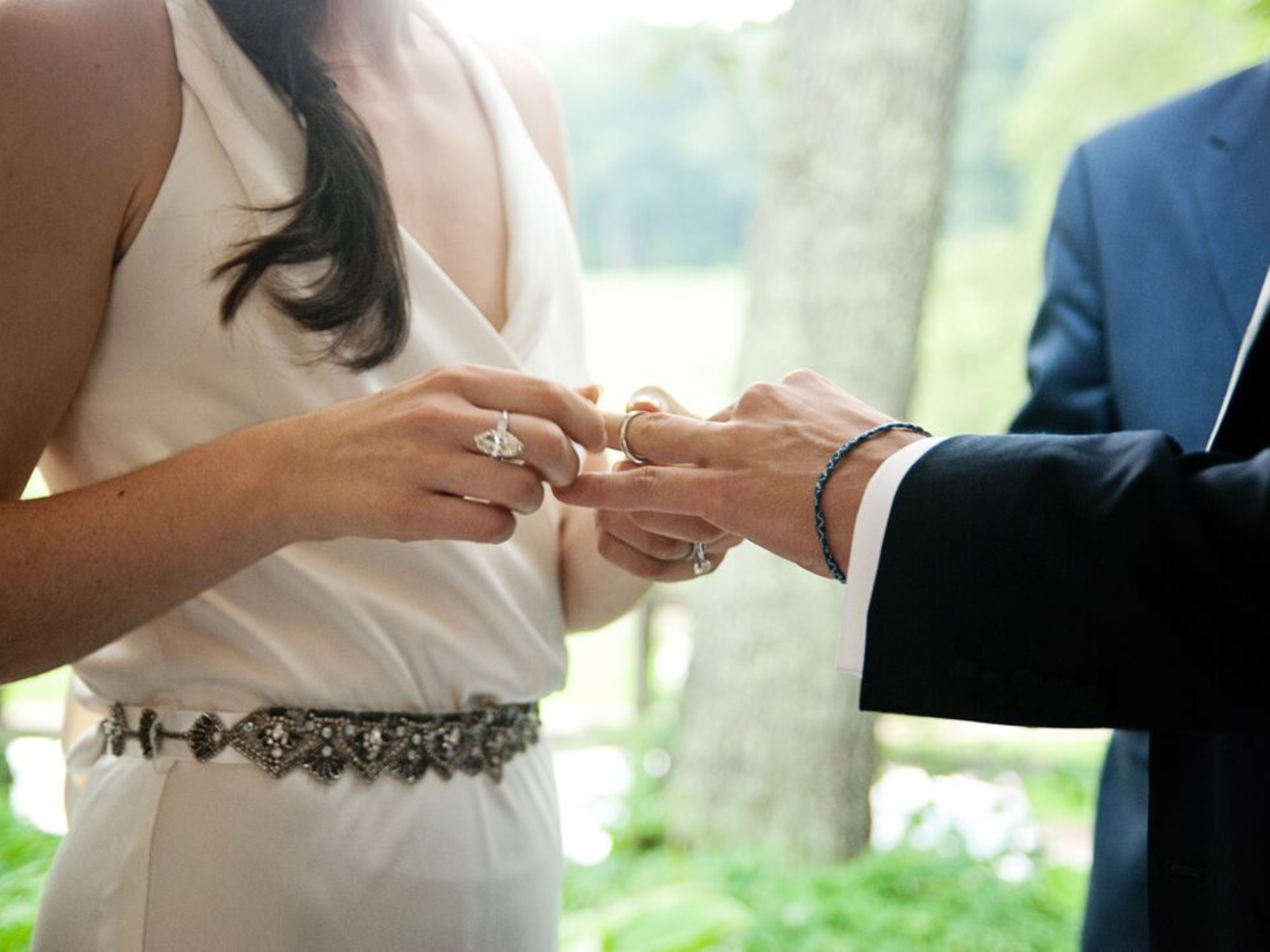
Hawaiian Wedding Traditions
At traditional Hawaiian weddings, one iconic custom is the exchange of leis which traditionally takes place during the ceremony and wedding vow exchange. Lei giving is a perfect way to incorporate a bit of Hawaiian culture into your wedding," says wedding planning expert Loren Petrowski of Marry You in Hawaii. "Wearing or gifting a lei for a celebratory occasion is very common in Hawaii and expresses your respect and love for the other person. At weddings, there could be a point in the ceremony where the couple does a lei exchange, or they could present lei to their parents or drape it over a photo of a relative that has passed and could not be there. While most lei today are bought from the stores, traditionally, in lei making, there was the gathering of the materials to make the lei, harvesting those plants and flowers, and then presenting that special person with the lei."
Sand Unity Ceremony
Sand rituals were one of the first types of wedding unity customs couples practiced. While unity ceremonies have since gotten more unique and personalized, sand ceremonies are still a fun option if you're having a beach wedding.
Something Old, Something New, Something Borrowed, Something Blue
While this custom has roots with an Old English rhyme, many modern American couples choose to incorporate the five items referenced in the poem: something old, something new, something borrowed, something blue, and a sixpence for your shoe. It's generally believed that carrying the items on your wedding day wards off evil spirits and bad luck to your marriage.
For some couples, their something old may be a wedding dress, engagement ring or wedding ring. Meanwhile, as something blue to-be-weds might opt to wear blue shoes or even have a patch of blue fabric sewn into a suit or wedding gown. The options for how to interpret this tradition are nearly endless—so feel free to have some fun with it.
Native American Wedding Traditions
A big reason that couples include wedding traditions on their big day is that they're a meaningful way to honor your heritage. If you're part of a Native American tribe, or have deep roots connected to Indigenous Americans, then consider incorporating a Native American wedding tradition that's meaningful to your tribe and history.
Black and African-American Wedding Traditions
In addition to jumping the broom, there are many other Black and African-American wedding traditions historically observed by couples tying the knot in the United States. For example, many couples may include a libation ceremony as another way to honor their heritage.
Military Saber Arch
If you're planning a military wedding, a saber arch during the recessional is a fun tradition that fellow servicemen and women at the nuptials can take part in. If any of your wedding party members, like bridesmaids or groomsmen, are in the military this can be a fun way to showcase their service.
During a saber salute, the couple will pass underneath an arch created by military sabers. Each branch of the United States Armed Forces has its own protocol for how the practice takes place, but it's meant as a way for the people forming the arch to pledge their loyalty and support to you as newlyweds.
Foot-Washing Ceremony
In recent years, many couples partaking in Christian wedding ceremonies in America have included the practice of foot washing in the wedding ceremony. Inspired by the Bible passage in John 13:1–17 where Jesus washes his disciples' feet, this act is meant to symbolize sacrificial love and devotion.
Food Trucks
Food trucks are especially popular at weddings in the United States and it's believed that Portland, Oregon, played a key role in the rise in popularity of food trucks in America. "Food carts became popular after their debut in Portland, Oregon," says Nora Sheils, co-founder of Rock Paper Coin and founder of Bridal Bliss. "The foodie town started the trend and continues to be the food cart capital. They have carts of all flavors, and many local couples want to show off this craze and regional cuisine for their wedding meal or, even more popular, as a surprise late-night treat."
Wedding Traditions in America FAQs
With all wedding traditions, it's best to understand protocol and etiquette before diving into plans to include certain rituals in your own big day. Keep these FAQs in mind as you start to plan.
Can I include cultural customs that honor my heritage in my American wedding?
America is a melting pot and celebrating that during your wedding is always a wonderful idea. If there are certain cultural or religious traditions that you resonate with or are connected to your heritage, consider including those on the big day.
Whether you want to showcase Jewish, Christian or Hindu wedding traditions, or include no religion at all, the prerogative is all yours. Similarly, honoring your culture—whether that means including Latin American traditions, African-American traditions, or Asian traditions like those seen at Japanese, Chinese, Korean, Thai, Vietnamese or Filipino weddings, there's nothing more American than celebrating the diversity that beautifully unites us.
Do I have to include traditions in my wedding?
The short answer: No. However, including traditions that have been passed down from older generations can be a nice way to pay homage to those who came before you, especially your parents and grandparents. While considering potential rituals to incorporate in your wedding day, connect with any VIPs who've been involved with your wedding planning to get their take. Whether or not you end up including traditions in your wedding ceremony and wedding reception, consulting your nearest and dearest friends and family members is a gesture that'll go a long way. And if you're on the fence about including traditions on the big day, you could even opt to have them as part of the rehearsal dinner instead.
